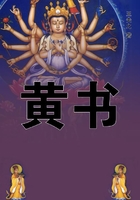Will you pardon me if I pause for a moment to put what I fear you may think an impertinent question? I never can go on with an address unless I feel, or know, that my audience are either with me or against me: I do not much care which, in beginning; but I must know where they are; and I would fain find out, at this instant, whether you think I am putting the motives of popular action too low. I am resolved, to-night, to state them low enough to be admitted as probable; for whenever, in my writings on Political Economy, I assume that a little honesty, or generosity,--or what used to be called "virtue,"--may be calculated upon as a human motive of action, people always answer me, saying, "You must not calculate on that: that is not in human nature: you must not assume anything to be common to men but acquisitiveness and jealousy; no other feeling ever has influence on them, except accidentally, and in matters out of the way of business." I begin, accordingly, tonight low in the scale of motives; but I must know if you think me right in doing so. Therefore, let me ask those who admit the love of praise to be usually the strongest motive in men's minds in seeking advancement, and the honest desire of doing any kind of duty to be an entirely secondary one, to hold up their hands. (About a dozen hands held up--the audience, partly, not being sure the lecturer is serious, and, partly, shy of expressing opinion.) I am quite serious--I really do want to know what you think; however, I can judge by putting the reverse question. Will those who think that duty is generally the first, and love of praise the second, motive, hold up their hands? (One hand reported to have been held up behind the lecturer.) Very good: I see you are with me, and that you think I have not begun too near the ground. Now, without teasing you by putting farther question, I venture to assume that you will admit duty as at least a secondary or tertiary motive.
You think that the desire of doing something useful, or obtaining some real good, is indeed an existent collateral idea, though a secondary one, in most men's desire of advancement. You will grant that moderately honest men desire place and office, at least in some measure for the sake of beneficent power; and would wish to associate rather with sensible and well-informed persons than with fools and ignorant persons, whether they are seen in the company of the sensible ones or not. And finally, without being troubled by repetition of any common truisms about the preciousness of friends, and the influence of companions, you will admit, doubtless, that according to the sincerity of our desire that our friends may be true, and our companions wise,--and in proportion to the earnestness and discretion with which we choose both,--will be the general chances of our happiness and usefulness.
But, granting that we had both the will and the sense to choose our friends well, how few of us have the power! or, at least, how limited, for most, is the sphere of choice! Nearly all our associations are determined by chance or necessity; and restricted within a narrow circle. We cannot know whom we would; and those whom we know, we cannot have at our side when we most need them.
All the higher circles of human intelligence are, to those beneath, only momentarily and partially open. We may, by good fortune, obtain a glimpse of a great poet, and hear the sound of his voice;or put a question to a man of science, and be answered good-humouredly. We may intrude ten minutes' talk on a cabinet minister, answered probably with words worse than silence, being deceptive; or snatch, once or twice in our lives, the privilege of throwing a bouquet in the path of a princess, or arresting the kind glance of a queen. And yet these momentary chances we covet; and spend our years, and passions, and powers, in pursuit of little more than these; while, meantime, there is a society continually open to us, of people who will talk to us as long as we like, whatever our rank or occupation;--talk to us in the best words they can choose, and of the things nearest their hearts. And this society, because it is so numerous and so gentle, and can be kept waiting round us all day long,--kings and statesmen lingering patiently, not to grant audience, but to gain it!--in those plainly furnished and narrow ante-rooms, our bookcase shelves,--we make no account of that company,--perhaps never listen to a word they would say, all day long!
You may tell me, perhaps, or think within yourselves, that the apathy with which we regard this company of the noble, who are praying us to listen to them; and the passion with which we pursue the company, probably of the ignoble, who despise us, or who have nothing to teach us, are grounded in this,--that we can see the faces of the living men, and it is themselves, and not their sayings, with which we desire to become familiar. But it is not so.
Suppose you never were to see their faces;--suppose you could be put behind a screen in the statesman's cabinet, or the prince's chamber, would you not be glad to listen to their words, though you were forbidden to advance beyond the screen? And when the screen is only a little less, folded in two instead of four, and you can be hidden behind the cover of the two boards that bind a book, and listen all day long, not to the casual talk, but to the studied, determined, chosen addresses of the wisest of men;--this station of audience, and honourable privy council, you despise!















